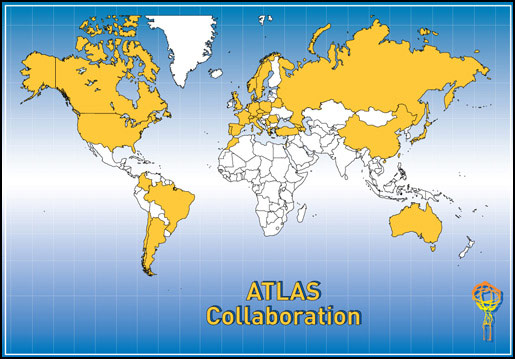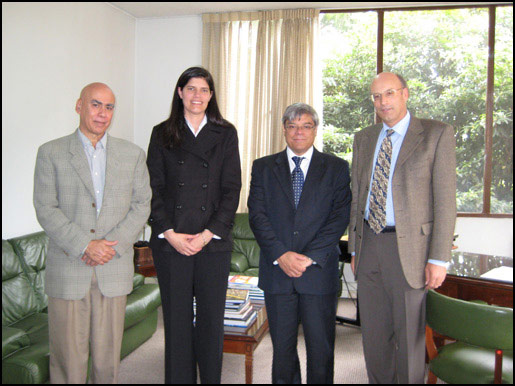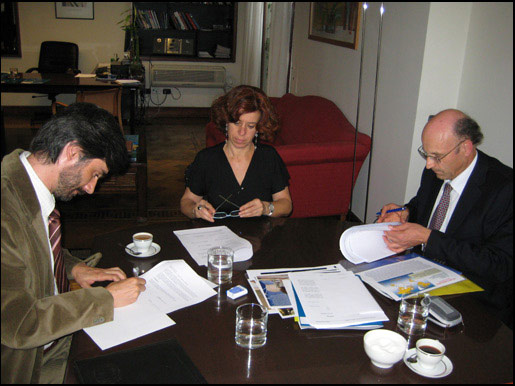Argentina, Chile and Colombia Join ATLAS Experiment
15 April 2008 | By

The ATLAS collaboration is continuously expanding, and recently its message has reached new shores – South America. Three new countries, Argentina, Chile and Colombia joined the collaboration at the beginning of the year, when Peter Jenni, ATLAS spokesperson, signed collaboration agreements formalising the presence of the Latin American research teams within the ATLAS experiment. “These South American groups have been working on ATLAS for many years now, so this is the official and well-deserved recognition of their hard work,” says George Mikenberg, an Argentinean physicist on ATLAS who has made lots of personal efforts to forge the collaboration with his homeland.
In Latin America, particle physics is kicking off just now because of the high cost of building experimental facilities. However, since researchers in these countries started to work on ATLAS back in 2002, they have shown how hard work and creative thinking can overcome a shortage of money: “The Latin American researchers have made important contributions to science, despitebeing far away and working on low budgets,” Mikenberg says.

The collaboration of Latin American groups with ATLAS has been fuelled by the European Union through HELEN, the High Energy Physics Latin-American-European Network. Since it was launched in 2002, the programme has provided economic and logistic resources to students and researchers from Latin America to join research projects at prestigious physics laboratories in Europe.
At CERN, the programme had a warm response, and soon after its start, physics students and researchers from Latin America began to join lab users from all over the world: “My colleagues and I saw the great potential of HELEN in helping new groups from Latin America to get involved in ATLAS and other LHC experiments,” says Nick Ellis, a British physicist who has been supporting the initiative from its very beginning and is now HELEN coordinator in the ATLAS collaboration.

One of the physics students working on ATLAS with HELEN support is Antonio Cardenas, from the University of Venezuela. Cardenas is developing software for the ATLAS detector as part of his Masters thesis at the Laboratoire de l'Accelérateur Linéaire outside Paris. He is extremely enthusiastic about it: “HELEN has offered me a unique opportunity to embark on particle physics and participate in the building of the ATLAS detector,” he says.
The expertise that Latin American scientists have gained on particle physics thanks to the programme has already borne fruit, and the field is gaining momentum in countries such as Argentina, Chile and Colombia: “The final goal is to help Latin American scientists to hold key posts within the ATLAS experiment,” Mikenberg says. Once this is attained, he explains, it will be easier for the scientists to get resources from their own governments in order to continue the excellent work on particle physics back in their countries.
For now, the South American universities that collaborate on ATLAS are the Universidad Católica and the Universidad Técnica Federico Santa María in Chile, the Universidad of Buenos Aires and the Universidad of La Plata in Argentina and the Universidad Antonio Nariño in Colombia. Other universities in Latin America are expected to join the collaboration in the coming months and years. This is just the beginning of a long term collaboration of Latin American physicists with the ATLAS collaboration.



